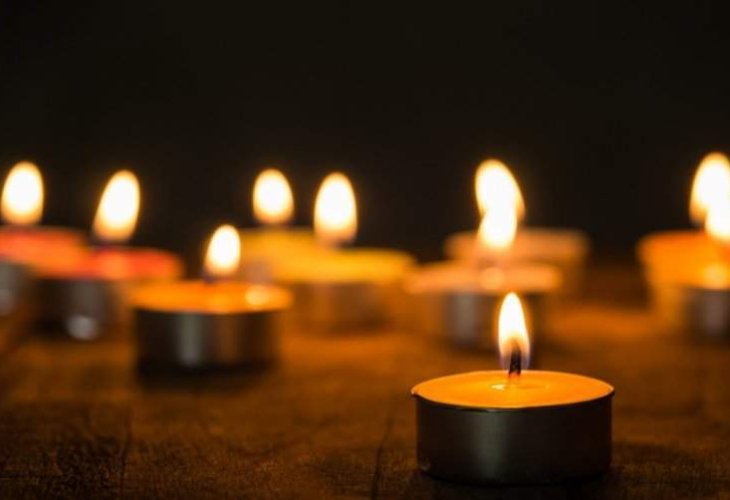Jewish Law
Before the Funeral: Jewish Laws that Honor the Dead
Close relatives of a deceased person are expected set everything aside in order to attend to the burial preparations and honor the dead
 (Photo: Shutterstock)
(Photo: Shutterstock)There is no English equivalent word for “onen.” The simplest way to describe an onen is: someone whose close relative has just passed away and who has yet to be buried. Following the levayah (funeral), an onen becomes an avel—mourner, and different halachot apply to him.
The reason why there is a special category of people called onen is that the Torah places extraordinary emphasis on honoring the dead. This becomes clear when we consider the halachot for an onen, which are all centered around the idea that the dead person must be attended to single-mindedly, and that their close relatives are expected to devote themselves to this end.
Becoming an Onen
The mother, father, sister, brother, son, daughter, and spouse of the deceased person fall into the category of onen. Grandparents and grandchildren do not; neither do cousins.
Since the onen has this special status in order to attend to the burial, in cases where burial is not possible (because, for instance, the body has been lost at sea, yet death has been confirmed), the relatives do not acquire onen status.
Similarly, if a relative is physically unable to attend to the burial (because, for instance, he is overseas), he does not become an onen unless there is a possibility that he will arrive in time to take care of the burial arrangements and no one else has concerned himself with them in the meantime.
What Being an Onen Involves
- Not eating meat or drinking wine
- Not attending festive meals or celebrations
- Not attending to business
- Not studying Torah (as Torah study causes happiness)
- Not bathing or cutting hair
- No marital relations
- Not reciting brachot on food, or Birkat Hamazon (Grace after Meals)
- Not being counted toward a minyan
- Not putting on tefillin
Onen on Shabbat or Yom Tov
Just as an avel (mourner) does not mourn publicly on Shabbat or Yom Tov, nor does an onen. Therefore, he eats the Shabbat or Yom Tov meals including meat and wine.
However, private demonstrations of mourning such as relations with one’s spouse apply on Shabbat and Yom Tov as well.
On Sukkot:
If the relative died just before the Yom Tov began and there was no time to bury them before nightfall, since burial cannot take place on the first day of Yom Tov, relatives do not acquire onen status. Therefore, Kiddush is recited as normal and all other mitzvot associated with Sukkot are performed.
Once the first day of Yom Tov ends (if the burial is to take place on the second day—otherwise, after the second day), relatives acquire onen status. They are exempt from eating and sleeping in the sukkah and from the mitzvah of Arba Minim (the Four Species of Yom Tov) but may fulfill these mitzvot, without a brachah, if they wish.
However, if the deceased person has already been entrusted to the Chevra Kadisha (Torah burial society), they may eat and sleep in the sukkah with a brachah, and also recite a brachah on the Arba Minim.
On Pesach:
An onen does not search for chametz in his home on the night before Pesach. Instead, he should appoint someone to make brachah and search for chametz. Afterward, the onen himself recites the declaration that he no longer possesses chametz.
If, however, the deceased has already been entrusted to the Chevra Kadisha, he may recite the brachah and conduct the search himself.
On the first night of Yom Tov, since burial cannot take place that day, relatives do not have onen status and fulfill all the mitzvot of the Seder (e.g., the four cups of wine, matzah).
An onen should count the Omer without a brachah or hear the brachah from someone else who has in mind to exempt him.
On Purim:
An onen must listen to the reading of the Megillah. He may eat meat and drink wine.
On Chanukah:
An onen should ask someone to light candles on his behalf. If there is no one available, he may light himself but he does not recite the brachot
On Chol Ha’moed:
If someone’s father or mother passes away on Chol Ha’moed Sukkot or Pesach, they should tear their clothes according to the halachah, but then change to an untorn garment out of respect for the Yom Tov.
For other relatives: Ashkenazim postpone the tearing until after Yom Tov; Sephardim tear on Chol Ha’moed.
Minors do not tear their garments on Chol Ha’moed, even for parents.
The brachah “Dayan Ha’emet” is recited regardless of whether one tears one’s garment.

